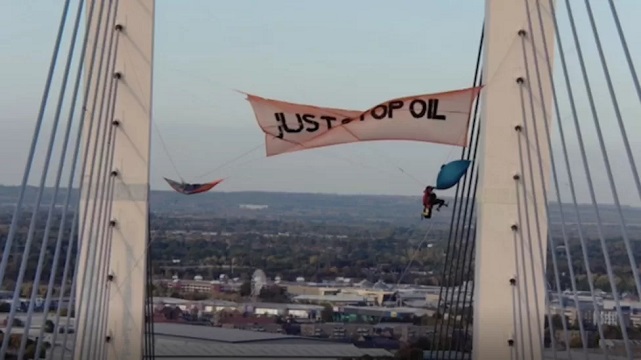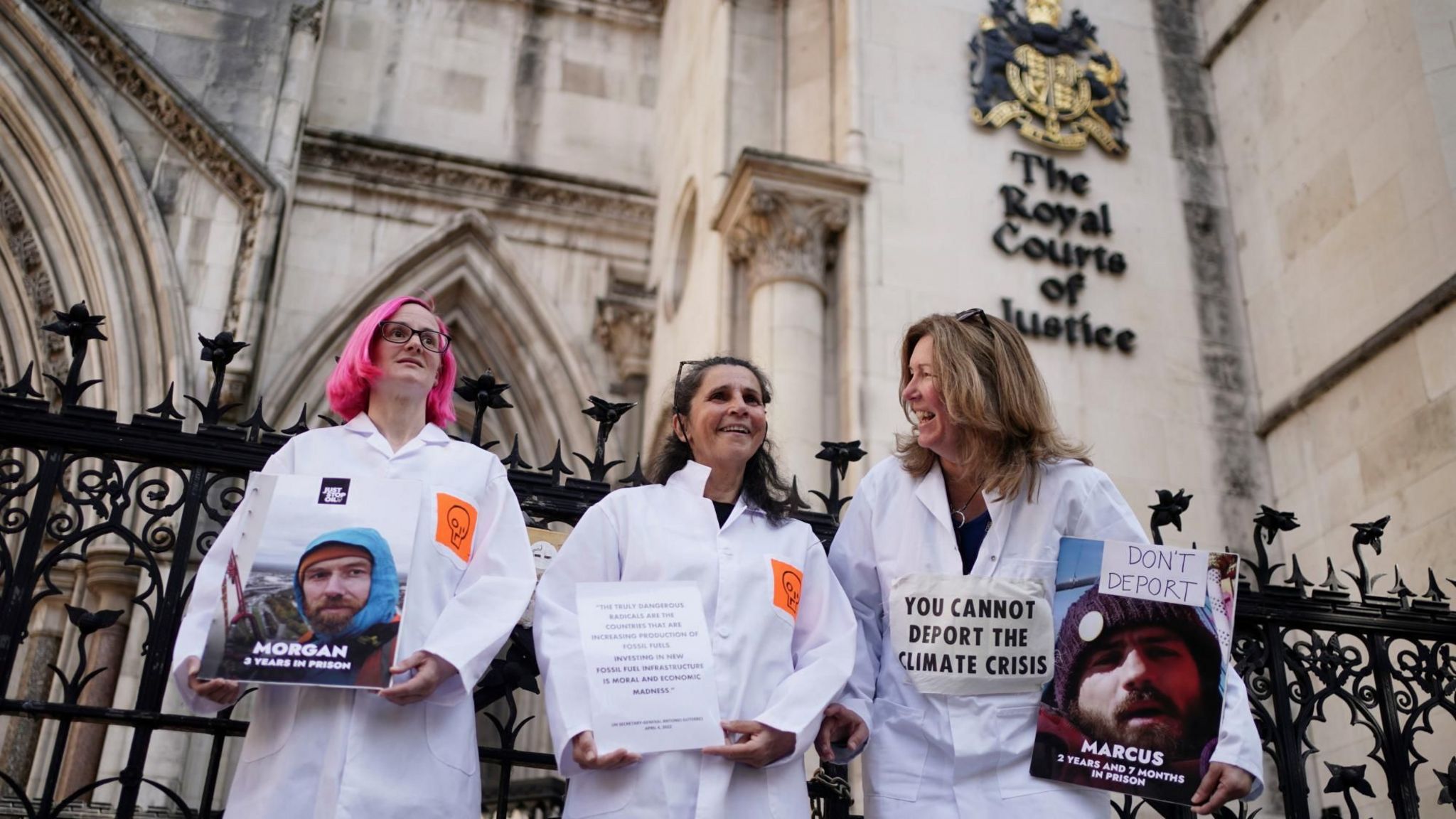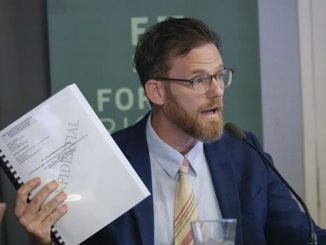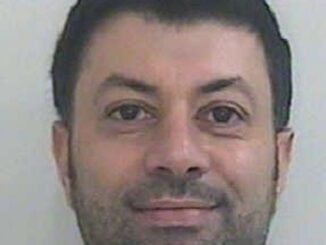
Long jail sentences handed to two Just Stop Oil climate campaigners could stifle protest, the United Nations has warned the UK government.
The protestors caused traffic gridlock after scaling the Dartford Crossing Bridge for almost 40 hours in October last year.
Morgan Trowland, 40, was jailed for three years and Marcus Decker, 34, for two years for causing a public nuisance.
In response to the UN, the government said that the right to protest is a fundamental part of the UK’s democracy but that the “law-abiding majority” must be able to go about their daily lives.
At an appeal hearing last month Lady Chief Justice, Lady Carr defended the sentences, saying they met a “legitimate” aim of deterring others from such offending. The activists were refused permission to challenge them in the Supreme Court.
The warning comes in a letter shown to BBC News, sent to the government by the UN Special Rapporteur on the promotion and protection of human rights in the context of climate change, Ian Fry, on 15 August this year.
The sentences are “significantly more severe than previous sentences imposed for this type of offending in the past,” Mr Fry notes.
He says he is worried about “the exercise of their rights to freedom of expression and freedom of peaceful assembly and association”.
The letter goes on to say the new Public Order Act which came into force in July “appears to be a direct attack on the right to the freedom of peaceful assembly”.
The new legislation includes measures aimed at curbing disruptive protests.
The letter sent in mid-August requested a reply within 60 days but has not received one, which the UN special rapporteur described as “troubling”.
“Most countries take these letters seriously and respond,” Mr Fry told BBC News. He suggested that the lack of a formal reply reflected “a general disregard for human rights concerns by the current government”.
The Home Office said it had “responded” to the special rapporteur’s letter.
It said peaceful protest is a vital part of a democratic society and a long-standing tradition in the UK, provided it is done within the law.
The new legislation is designed to “clarify the definition of serious disruption and allow police to clear roads quickly”, it told the BBC, and said the new legislation on protests was put in place following proper parliamentary procedure and is compatible with the European Convention on Human Rights.

“It is a total political failure,” Morgan Trowland said in a statement to the BBC from prison. “It is people vs oil, and our government has signalled that it is on the side of oil.”
“By not even responding to the concerns in this letter, the government is showing an extraordinary disregard for our civil liberties,” said Jodie Beck, Policy and Campaigns Officer at the human rights charity, Liberty.
“Protest is not a gift from the state, it is a fundamental right,” she added. “The government should be ensuring demonstrations are safely facilitated and that protest rights are safeguarded.”
During last month’s appeal hearing, Lady Carr told the court: “The sentences should not be seen as having a ‘chilling effect’ on the right to peaceful protest or to assembly more generally – deterrence and ‘chilling effect’ are not the same.”
Lady Carr added that the jail terms reflected “Parliament’s will” under new laws carried out under the Police, Crime, Sentencing and Courts Act.
At a court hearing in July judges had acknowledged the “long and honourable tradition of civil disobedience on conscientious grounds” and that the sentences handed to Trowland and Decker went “well beyond previous sentences imposed for this type of offending”.
Source: bbc.co.uk






Be the first to comment